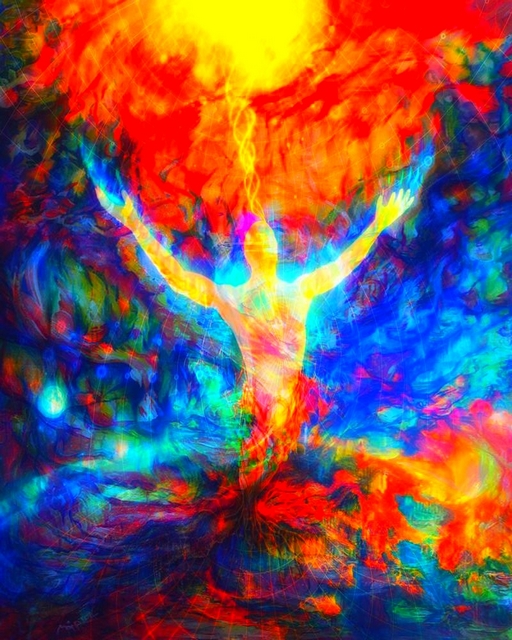Reimagining Incarnation

"Incarnation"
Credit: Frank A. Mills, Modified AI Image
Thinking About Incarnation
n some Christian Universalist circles, what I am about to state would be heresy:
I am a Universalist Christian not because it speaks of my ultimate acceptance by God, but because I find it to be a radical counterculture that has the potential of turning contemporary culture on its head (and that includes Western Christianity).
For me "salvation" is not about the afterlife, it is about SAVING our cosmos from our present-day destructive culture. For me, Christian Universalism is about a changed way of living in the present, not about living in the afterlife. It is about making the Mystery called "God," real through our healing actions of living justly and delivering mercy with humility. It is about being the PURE LOVE that is God.

Why?
I think that emphasizing God’s incarnation into the material universe (into matter/nature) is an emphasize that might reach a secularized culture. This would take emphasis off of penal substitution and place on realignment. It would also address the “But God said/God do this…” naivety of popular Christianity, in a way that says God needs nature (materiality) to complete the fullness of the God-head.
We humans are the prime-movers – God’s presence – of this completeness. It (de Chardin) is about evolving into the future with more life, more being, and consciousness, what de Chardin calls “ultrahumanism.”
This is a humanism that doesn’t exclude God, but makes us creators of the new with God. In it, we evolve, nature evolves, God evolves.

So, where does this lead?
1. The Incarnation demonstrates God’s “burning love” by entering into the material (nature) universe.
2. The Crucifixion demonstrates “burning love” of the Logos (Christ) for the material (natural) universe.
3. The Resurrection seals the reality of God’s “burning love” for the material (natural) universe.
4. The Transfiguration demonstrates the potential of God’s “burning love” for the material (natural) universe.
Note emphasis on material, or natural world, rather than on humankind. It seems to me that this way of looking at the prime event of the liturgical year negates the traditional emphasis of Christ "coming to save us from our sins" (Christ came just for us) to what we might call an "entunement" (or maybe "re-entunement" is better word) of the material universe to her holy role of full-filling what was lacking in the God-head, i.e., materiality.
I would really like to hear your thoughts on my pondering.
Frank A. Mills
Sheffield Lake, OH
March 8, 2023
If you would like to read my "pondering questions" and think about them, you can do so here.
[Note: In the Celtic primordial of myth of creation, creation is sung into existence. Which means, I think, that Celtic Christianity, especially through the eyes of Eriugena will have much to contribute as I ponder.]
Frank A. Mills
Sheffield Lake, OH
March 30, 2024
